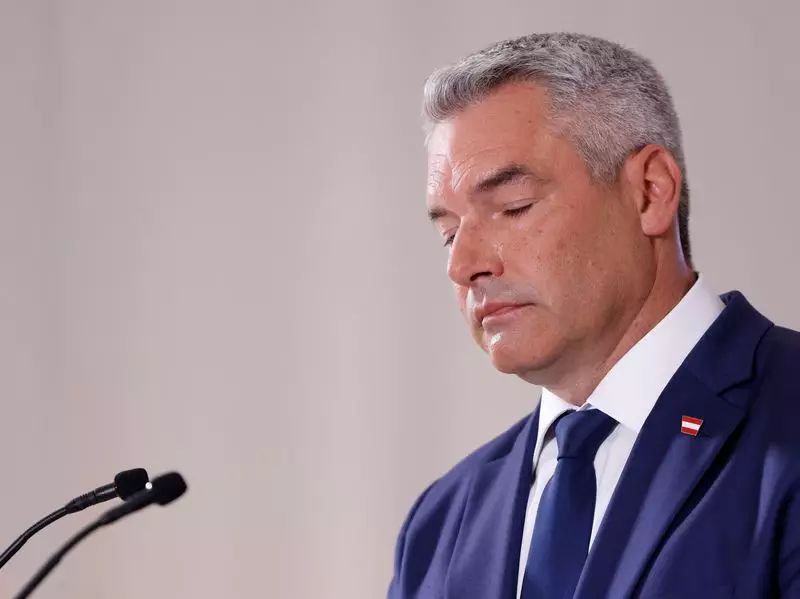The political landscape in Austria is experiencing a significant upheaval following the unexpected resignation of Chancellor Karl Nehammer. His departure, a culmination of failed coalition discussions, has prompted urgent conversations among the ruling conservative faction and President Alexander Van der Bellen. As the far-right Freedom Party (FPO), which emerged as the frontrunner in the recent parliamentary elections, gains momentum, Austria’s traditional centrist parties are grappling with their future.
On the brink of forming a centrist coalition, discussions between three and then two parties crumbled under pressure, leaving the political mainstream in disarray. Nehammer’s resignation on a relatively quiet Saturday surprised many, yet it illuminated the deep fissures within his party, the Österreichische Volkspartei (OVP), as well as the challenges they face against a surging FPO. This coalition’s failure raises dire questions about democratic stability in Austria, especially as the FPO has gained traction with nearly 29% of the vote in September’s elections, maintaining a steady lead over its centrist competitors.
As President Van der Bellen contemplates his limited options, the political strife hints at an impending crisis. With calls for a snap election gaining speed, protracted political maneuvering could delay the establishment of a new government by months. This situation is exacerbated by the fact that if elections were called, they’re likely to bolster the FPO’s position even further, given their growing popularity among the electorate. The urgency of this moment cannot be overstated, as both the OVP and the Social Democrats see their support diminish in light of the FPO’s ascent.
Markus Wallner, governor of Vorarlberg, has voiced his concerns, emphasizing the need to prevent Austria from slipping into national crisis. His opposition to a snap election underscores a pragmatic approach when facing the possibility of an alliance with the increasingly influential FPO. During his tenure, Nehammer had consistently distanced the OVP from the FPO, citing concerns over Kickl’s extreme views and unfounded conspiracy theories, highlighting the difficulty of stabilizing the political climate without incorporating elements perceived as radical.
This reflects a broader trend within Europe, where mainstream parties are compelled to reassess their strategies in the face of resurgent right-wing movements. Combining forces with the FPO risks alienating the OVP’s moderate base, creating a friction that complicates potential negotiations. Concessions may be necessary, yet pragmatic considerations of effective governance and the need to appeal to a broader spectrum of voters prevail.
Nehammer’s resignation opens the door for a new party leader, yet contenders seem scarce. While media speculation once hinted that high-profile figures like Sebastian Kurz could return to leadership, those prospects have dimmed, leaving less familiar candidates such as Wolfgang Hattmannsdorfer in the running. The internal dynamics pose a significant challenge for whoever emerges as the new leader; they must navigate the precarious waters of coalition-building while searching for a sustainable governance model that resonates with an increasingly polarized populace.
Crucially, the relationship between the OVP and FPO extends beyond mere political rivalry—it carries the weight of past governance experiences and controversial coalitions that shattered under scandal. The overlapping issues between the two parties, such as hardline immigration policies, brought them to power in previous governing arrangements. However, the ambiguity of leadership roles in any potential new coalition complicates matters further, positioning the OVP as a likely junior partner should they proceed with a collaboration.
In this critical moment, the stakes for Austria’s democracy are exceptionally high. As far-right ideologies gain traction amidst global discontent, mainstream parties are rallied to maintain their relevance and protect democratic frameworks. The situation necessitates dialogue and reflection on core values that transcend party lines. As Nehammer’s resignation has shaken the foundations of traditional politics in Austria, the challenge now lies in forging a united front that can stand resilient against the surging tide of extremism while advocating for a better, inclusive future for all Austrians.

